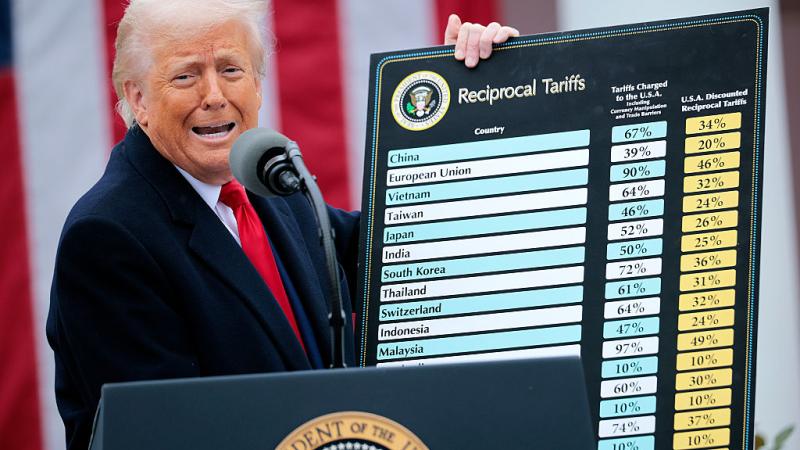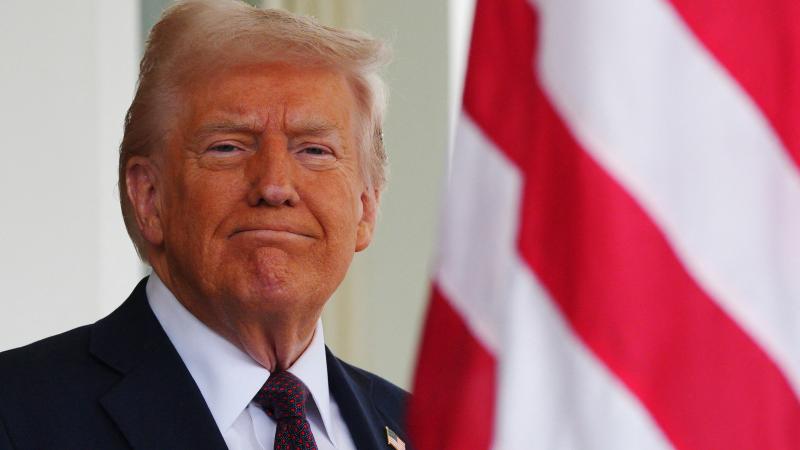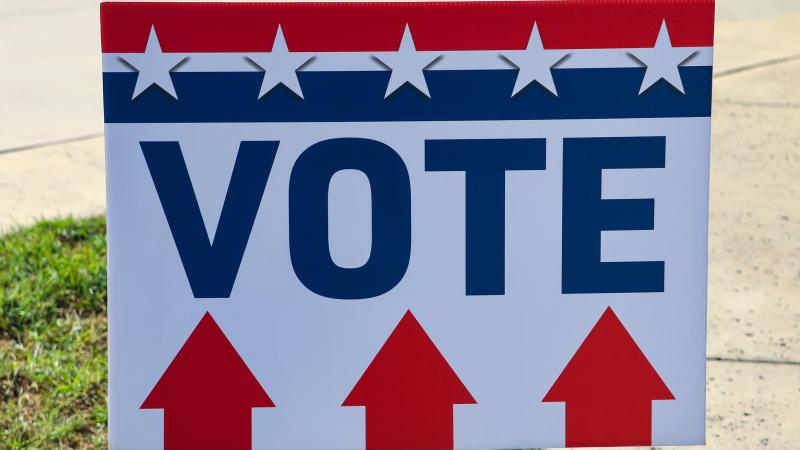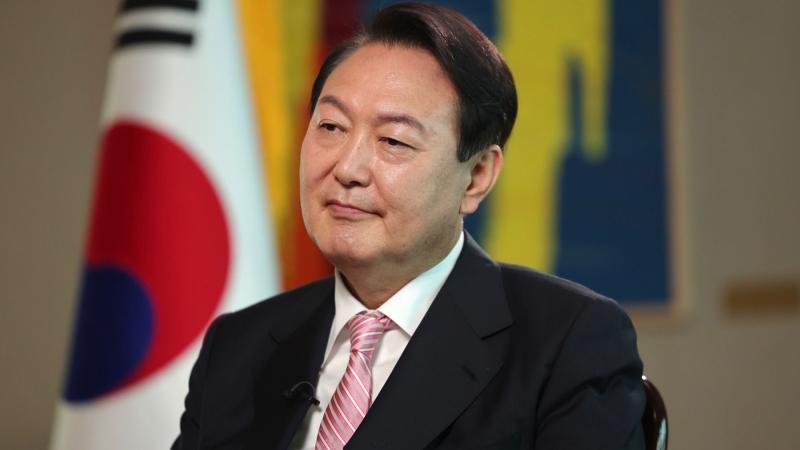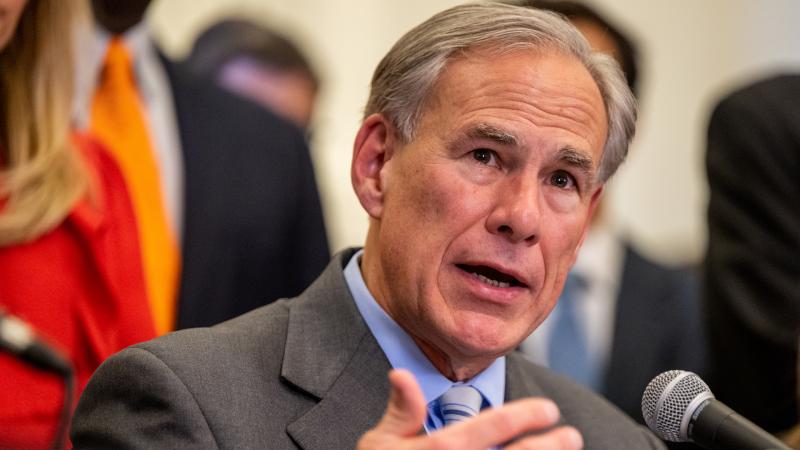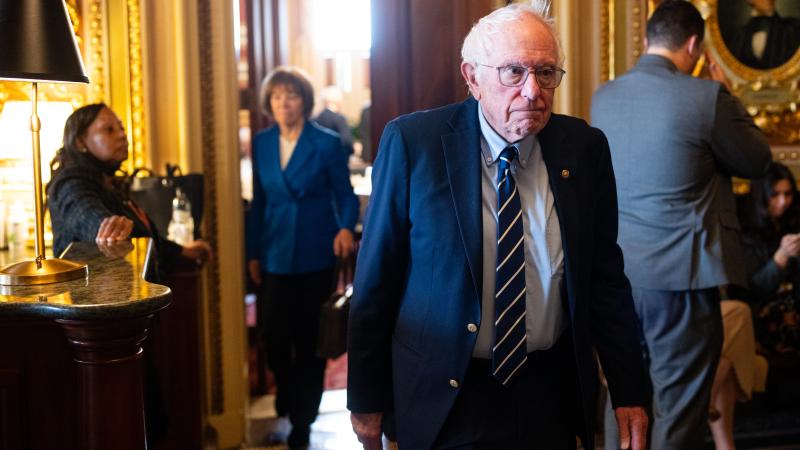Trump begins trade war in earnest by shoring up key allies, targeting Chinese goods
Aluminum and steel are key materials in industrial manufacturing, an industry Trump hopes to resuscitate in the U.S. economy. At this point in time, China has an overwhelming advantage in accessing strategic commodities.
President Donald Trump announced 25% tariffs on steel and aluminum imports on Monday, targeting critical industrial goods after shoring up trade relations with Japan and setting the stage for what is expected to be a lengthy economic showdown with China.
“Very simply, it’s if they charge us, we charge them,” Trump said over the weekend.
Aluminum and steel are key materials in industrial manufacturing, an industry Trump hopes to resuscitate in the U.S. economy. To that end, he further announced during a press conference with Japanese Prime Minister Shigeru Ishiba that he had convinced Nippon Steel to invest in U.S. Steel rather than buy it outright.
"Very exciting"
“So they've agreed to invest heavily in US Steel, as opposed to own it. And that sounds very exciting,” he said. Last year, the Japanese firm reached an agreement to purchase the iconic American company. The announcement drew outrage from the American public and Trump vowed during the campaign that he would stop the deal.
Trump’s approach to tackling a trade war thus far appears to be addressing trade deficits with key allies to bolster American industry while imposing tariffs on critical Chinese goods.
“President Trump’s bold move to enforce reciprocal trade tariffs could reshape global commerce,” former Trump economic advisor Stephen Moore posted on Monday. “With the U.S. boasting the lowest tariffs of any major economy, other nations must rethink their strategies. If China, Germany, and others want to avoid retaliatory measures, they’ll need to lower their tariffs. This could lead to a new era of freer trade!”
Shoring up trade with allies
Trump has made clear that he is willing to pursue tough negotiations, with both American allies and adversaries.
“I made clear that the United States will be conducting trade with all countries based on the principle of fairness and reciprocity,” Trump said at the Friday press conference with Ishiba. “Chronic trade deficits not only undermine our economy, they really do. And we're going to get rid of the trade– we have a trade deficit with Japan of over $100 billion, but we're going to work that out.”
Trump further touted the “vital economic relationship” between Washington and Tokyo and highlighted Japan’s “nearly $800 billion” investment in the U.S. Ishiba, for his part, indicated that he viewed the United States as a positive investment for his nation and confirmed he would work toward reaching $1 trillion in Japanese investment.
“And as for Japan, as [Trump] has introduced to us, an unprecedented investment will be made from Japan to the United States, and so many jobs will be created,” he promised. “So $1 trillion is the target, and this will be to the benefit of the United States, but also to the benefit of Japan as well.”
In return, Trump confirmed an agreement with Japan to export liquefied natural gas (LNG) to the archipelago and that energy exports alone may be sufficient to address the trade deficit.
“I'm also pleased to announce that Japan will soon begin importing historic new shipments of clean American liquefied natural gas in record numbers,” Trump said.
Canada and Mexico
Trump isn’t just targeting Japan for redress. After previously negotiating the United States-Mexico-Canada Agreement (USMCA) during his first term, Trump has since moved to further reorder North American trade, floating tariffs on both nations. Trump agreed to postpone tariffs on both nations after they agreed to supply troops to patrol their respective borders and crack down on trafficking.
That pause, however, served as a precursor to what Trump hopes will be final negotiations with both nations. Last week, he announced that the U.S. and Mexico “will have negotiations headed by Secretary of State Marco Rubio, Secretary of Treasury Scott Bessent, and Secretary of Commerce Howard Lutnick, and high-level Representatives of Mexico.”
On the Canadian side, Trump declared he was “very pleased with this initial outcome, and the Tariffs announced on Saturday will be paused for a 30 day period to see whether or not a final Economic deal with Canada can be structured. FAIRNESS FOR ALL!”
Working against China
During the press conference with Ishiba, Trump confirmed that the pair had “agreed to cooperate even more closely to combat the Chinese economic aggression, which is quite aggressive.”
Trump’s first term saw him wage a modest trade war with China, largely through the imposition of tariffs, though it did not lead to a lasting agreement with Beijing. This time, however, more Republicans, lawmakers, and foreign allies are more in-line with his hawkishness on Chinese trade. For Japan, in particular, the economic issue overlaps with concerns over Chinese geopolitical ambitions in Taiwan and their shared waters with Tokyo.
Speaking on the “John Solomon Reports” podcast last week, Rep. Eric Burlison, R-Mo., indicated that his office had received no concerned calls from constituents about the tariffs and insisted that his voters understood the necessity of using tariffs as a negotiating tactic. He further declared that the media was desperate to create a narrative blaming Trump for inflation through tariffs and that journalists had pressed him for stories of terrified phone calls to that end.
“And I got to tell you, John, I've not had – I asked my team today, ‘are you guys getting phone calls about this?’ They're not,” Burlison said. “They're not getting phone calls about, you know, people concerned about inflation from the tariffs, because the people understand Trump is, it's, it's, you know, it's a leveraging point, it's a negotiating tool that he needs.”
“And we don't want to take that away, because he'd look at what he's done already with it,” he went on. “I'm in favor of eliminating as much income tax or taxes on productivity as possible, right? I've always been a fan of the fair tax, but I kind of like the idea even better of eliminating the income tax and replacing it with tariffs, because you're encouraging people to work, you're encouraging people to produce in the United States.”
After announcing the initial 10% tariffs on Chinese imports, the Chinese imposed tariffs on American imports, which took effect Monday. Among those were a 10% tariff on crude oil and a 15% tariff on natural gas and coal.
Despite the predictions of market analysts, such as the S&P Global Ratings economics team that projected "overwhelmingly negative” impacts of a trade war, markets remain relatively unfazed by the shifting dynamics of international trade and several major indices closed up on Monday.


